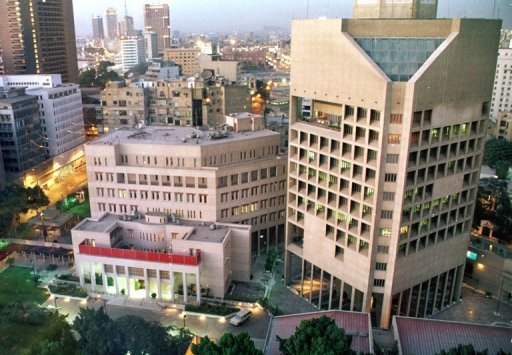
As the news has come in of Egypt’s military chief, General Abdel Fatah Al-Sisi, looking for a strong turnout in next week’s constitutional referendum as a mandate to run for president, a mixture of near hysterical praise and hostile cursing of him has intensified on social media. Al-Sisi’s supporters are jubilant that he is still alive and that the rumours of his death spread by the Brotherhood’s supporters turned out to be fabricated, while his opponents are fuming that his candidacy has become a high probability. The mixture of fascination and resentment of strong men run deep in the Egyptian society; it is a symptom of a deeper, chronic struggle with Western modernity, which was manifested recently in the poor management, and even exploitation – by all parties – of both the January 2011 and June 2013 uprisings.
“Sisi ___ may you end as Kim Jong-un’s uncle.” This was a curse that I read on Facebook. I heard similar curses in the Rabaa sit-in, where many pro-Morsi supporters were praying in Ramadan (the Muslim holy month) for Al-Sisi to be paralysed, or for his legs and arms to be amputated. Such a savage curse reflects the depth of hatred for the man who dared to depose Morsi.
In cursing Al-Sisi, Islamists are cursing their inabilities to produce a solid, comprehensive project that can address the questions of institutions, freedom and democracy in a modern Islamic state. The Brotherhood’s inept approach to governance was mainly in the form of implanting loyal men in sensitive administrative positions, and introducing Islamic Sukuk as an answer to economic downfalls. It was a shallow, insincere plan that was not even enough to consolidate their power or crush their enemies. Their failure has nothing to do with General Al-Sisi; the military chief has exploited their clumsiness rather than caused it—a simple fact that is conveniently ignored by some observers.
Moreover, non-Egyptian, strong men like Erdogan of Turkey, and even-ironically, Sharon of Israel, fascinate Islamists. They see them, these strong men, as the solution “for the victory of Islam”. “I wish we had a leader like Sharon” is a sentiment I have heard from many, particularly from followers of political Islam. The sad reality is, if General Al-Sisi, with his ruthlessness and brutality, backed the Muslim Brotherhood, Islamists would worship him as their all-time hero.
On the other hand, the non-Islamists’ fascination with, and elevation of, General Al-Sisi into a near mythical figure is a reflection of their own failure to handle the challenges of modernity in a traditional Muslim society. They are neither secular nor liberals; their semi-adoption of the Western model has brought the pitfalls of many Western ideas without the goodness of its core values—a lose-lose situation that rendered Egypt’s postcolonial era a trail of failures.
At the heart of the non-Islamists’ failure is the belief of a one-man approach to governance. With a quick glance at the constitution draft, one can notice the fascination with names from Mostafa Kamel and Saad Zaghloul to Gamal Abdel Nasser. Although they were great figures in Egypt’s national struggle, none of them have actually succeeded in providing a solid, sustainable model of governance. In a way, Egypt is now paying the price for their failures, not their successes. Moreover, there is something deeply unsettling to see potential presidential candidates like Sabahy and Ahmed Shafiq praising their possible rival, General Sisi, instead of providing a clear manifesto for governing Egypt. Such a self-defeated approach only reflects their bankrupt credentials and subordinate characters. Both Sabahy and Shafiq are the non-Islamist version of Morsi. The ousted president was his party’s second choice; now, Sabahy and Shafiq are happy to play the same role for General Sisi.
If the predictions are right and General Sisi becomes president, he will set a new chapter in Egyptian history: a new military rule that Egypt has never experienced before. Unlike the popular belief that the 1952 coup d’état has entrenched army rule in politics, the opposite is true; it actually turned some young officers to politicians who control both military and civil sides of the Egyptian state. However, 2014’s instability could force “President Sisi” to submit Egypt to full, direct, ruthless military control. “My men start work at 5.00am, would you be happy to do the same?” GeneralAl-Sisi asked those who “pleaded” with him to run. Many overlooked the statement but it is a perfect example of how the man thinks. Al-Sisi will have no options other than trusting and empowering his men, and demanding tough working conditions from the others. Currently, the army is an empire within the state; later, the army may expand to control the state.
Revolution does not succeed by just removing bad leaders but by laying the foundations of a functioning state that can govern in a sound way. Egypt, sadly, has opted to reduce such a complicated matter into either electoral legitimacy, as with Morsi, or a mythical figure, such as Al-Sisi.
Whether Al-Sisi understands it or not, his candidacy is a huge gamble. The corrupt elite that are cheering for him now will be the first to turn against him if he fails to provide stability, tries to fight their corruption, or replaces their tycoons with his friends and colleagues. Moreover, the poor and the disfranchised Egyptians who are fantasising about his tenure can be the first causality of his failure if he fails to deliver welfare, security, and stability.
In a way, General Al-Sisi is a man from Naguib Mahfouz’s novels: he is flattered by the praise and tempted by the adventure, but also fears its consequences. Egypt has not changed much from Mahfouz’s fictional novels; it has neither true democrats nor smart autocrats, which is precisely why it was unrealistic to expect fast, substantive changes after its revolution. Egyptians have to learn the hard way from their mistakes—an organic process that may take time. Eventually, the fascination with General Al-Sisi will end. President Al-Sisi will not be as “sexy” as General Al-Sisi, and the reality of governance will daunt him and his supporters.



